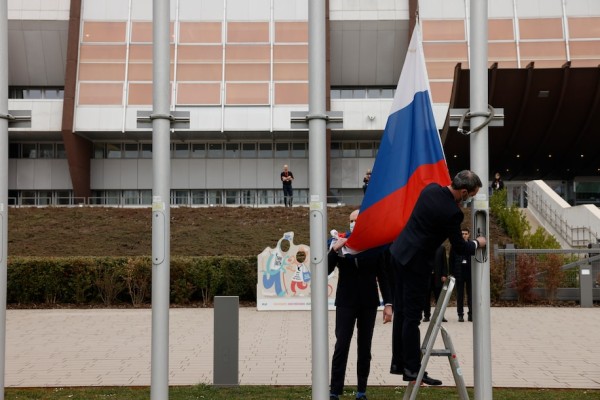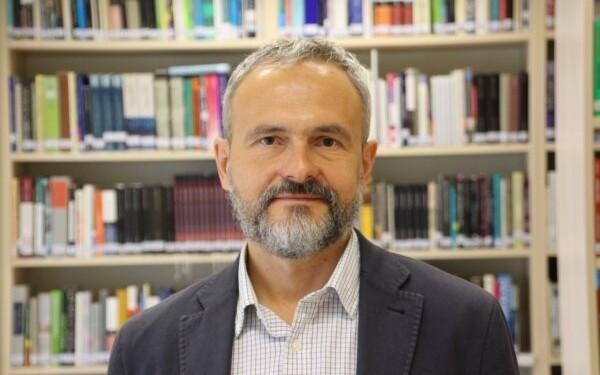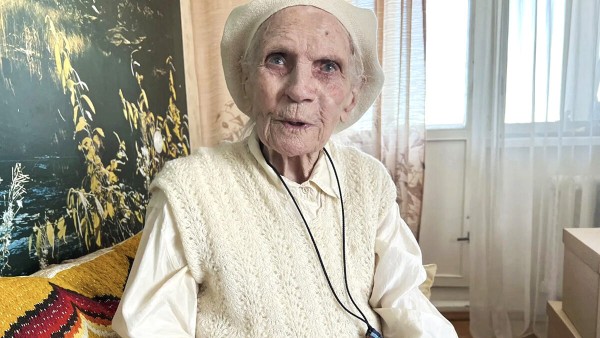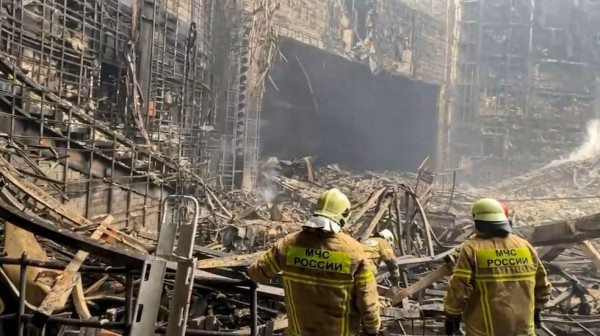On Wednesday, in a somber ceremony in Strasbourg, France, the Russian flag was lowered from its staff in front of the Palace of Europe, formally ending Russia’s membership in the continent’s oldest intergovernmental organization and marking the final rupture between Vladimir Putin’s regime and the democratic world. The decision to expel Russia from the Council of Europe — a body established after World War II to safeguard peace, the rule of law, and human rights — was taken by European lawmakers and diplomats in response to Putin’s invasion of Ukraine, which the Council classified as a “crime against peace” under the Nuremberg statutes and an “aggression” in the United Nations definition of the term.
Adding to the symbolism, the expulsion came almost exactly 30 years after Russia first applied to join the Council of Europe and its landmark Convention on Human Rights. On May 7, 1992, just months after the collapse of the Soviet Union and the emergence of new democracies in its stead, then-Russian Foreign Minister Andrei Kozyrev came to the Palace of Europe to submit the application and herald a historic day for “returning Russia to its distinct and rightful place as a great power in the family of European nations.” His Western counterparts responded with enthusiasm, noting that the admission of Russia, Europe’s largest country, would finally give the organization “the truly pan-European dimension its founders had dreamed of.”
After an arduous accession process, Russia was admitted with an overwhelming vote by European lawmakers in January 1996. Addressing fellow heads of state at a European summit the following year, Russian President Boris Yeltsin affirmed that “we are coming close to creating a new and big Europe without dividing lines, a Europe where no country would dictate its will to others.”
That promise was not to be — and it was Yeltsin’s successor in the Kremlin who would set out to undermine the Council of Europe’s basic principles. In violation of Russia’s commitments, Putin shut down independent media outlets, imprisoned opponents, rigged elections, tamed parliament, subjugated the courts and negated fundamental rights such as the freedom of assembly. Domestic repression was followed by outward aggression as the Kremlin attacked neighbors (and fellow Council of Europe member states) Georgia and Ukraine, de facto seizing territories from the former and officially annexing part of the latter.
Still, the Council held back from expelling Russia — in part, at the urging of Russian democrats (including the author of this piece). After domestic democratic mechanisms had been neutered, Council of Europe institutions — above all, the European Court of Human Rights — provided Russian citizens with our only remaining recourse to real justice. Over the years, the court has ruled in thousands of Russian cases, including those politically sensitive for the Kremlin, such as the arrests of anti-corruption campaigner Alexei Navalny, the poisoning of FSB defector Alexander Litvinenko and the state-directed looting of the Yukos oil company. And even though Putin’s government refused to implement those rulings, they still established a vital standard of truth — a goal of justice in its own right.
The Council of Europe also provided important oversight mechanisms in the form of special reports in its Parliamentary Assembly — most notably, on the assassination of Russian opposition leader Boris Nemtsov and on the growing crisis regarding political prisoners in Russia.
Russian citizens have now lost these protections. In a shocking reversal of the previous understanding that cases already under review will be completed, the European Court announced this week that it is suspending all pending Russian claims — more than 18,000 of them. The expulsion from the Council of Europe also paves the way for reinstating the death penalty that was suspended as part of Russia’s accession commitments in 1996 — a possibility already raised by Dmitry Medvedev, deputy head of Putin’s security council.
But when I addressed members of the Parliamentary Assembly this week — on the heels of devastating reports of cluster bombings of residential areas across Ukraine, the deliberate targeting of civilians and the heartbreaking news of the death of a pregnant woman and her unborn child as a result of the Russian bombing of a maternity ward in Mariupol — I honestly told them that I no longer felt any moral right to oppose expulsion.
In the end, the decision in the Assembly was unanimous, 216 votes to 0. Russian Foreign Minister Sergei Lavrov’s rushed letter to the Council announcing “voluntary withdrawal” couldn’t fool anyone. Russia was expelled by a common will of all the other European nations — the tragic and logical conclusion of two decades of Putin’s autocratic rule.
The only precedent for such an action was Greece’s exit in 1969, following a military coup. That expulsion was short-lived: The country was readmitted in 1974 after democracy was restored. During this week’s debate, many European lawmakers expressed their optimism that the decision on Russia would be similarly reversible. “I hope that we can nevertheless look forward to tomorrow, however difficult it may be, to see beyond this desolation,” said Damien Cottier of Switzerland, who chairs the Assembly’s powerful Legal Affairs Committee. “If Russia is leaving the Council of Europe today because its government is keeping it away, let us be sure that it will return one day, because Europe is its home and its history.”
One day, I know, we will get that flag back up.
https://www.washingtonpost.com...
Russia loses its last link to Europe — for now
Eestlased Venemaal | 18 Mar 2022 | Vladimir Kara-MurzaEWR
Eestlased Venemaal
TRENDING

























